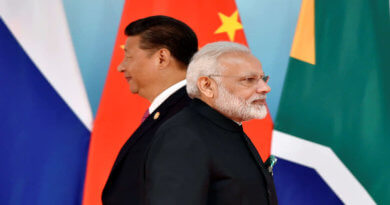Taiwan’s Vice President Rejects ‘Peace Agreement’ Proposal with China, Citing Hong Kong and Tibet as Cautionary Examples

By Tsering Choephel
DHARAMSALA, 14 Sept: Taiwan’s Vice President, Lai Ching-Te, who is the Presidential candidate for the ruling Democratic Progressive Party (DPP), called Terry Gou of the pan-Blue opposition’s proposal for a ‘peace agreement with Beijing’ unviable during his address to supporters in Kaohsiung on Sunday, as reported by Focus Taiwan on Monday.
Lai Ching-Te is quoted as saying, “If a peace agreement were genuinely effective, Tibet wouldn’t have endured such suffering.”
His reference to Tibet alludes to the Seventeen Point Agreement of 1951 between Tibet and China, which guaranteed Tibetans a high degree of autonomy. However, China subsequently violated all the terms and conditions of the agreement, leading to the exile of the Dalai Lama and the violent suppression and suffering of the entire Tibetan region.
The DPP of Taiwan does not accept the “1992 consensus,” a disputed agreement between the Kuomintang (KMT) party and the Chinese Communist Party (CCP). While it acknowledges ‘one China,’ the two parties differ in their interpretations of what ‘China’ means.
Lai emphasized, “Peace without sovereignty is not genuine peace,” citing Hong Kong’s loss of sovereignty to the CCP and the subsequent crackdown and adverse atmosphere in the region. Under the “one country, two systems” framework, Britain’s handover of Hong Kong to China in 1997, with a promised 50 years of substantial autonomy and an independent judiciary, has crumbled under the CCP’s crackdown on Hong Kong’s freedom.
Lai also addressed those questioning the benefits of democracy in Taiwan, stating, “Without democracy, Taiwan wouldn’t enjoy the freedoms we do today.” He urged the public to choose between continuing along the democratic path or regressing due to the threat posed by authoritarianism.
He considered the upcoming 2024 Presidential election a crucial turning point, given major shifts in global geopolitics, with the authoritarian government of China and the Democratic U.S. in stiff competition and growing hostility. The CCP’s pursuit of ‘reunification’ with Taiwan is considered inevitable by most analysts, with Xi Jinping declaring his intent to use “all necessary means,” including force, to achieve that goal.
The DPP, the ruling Taiwan government, is a pro-democracy and pro-independence party currently led by President Tsai Ing-wen. Vice President Lai Ching-Te, the presidential candidate for the DPP, is polling ahead of his competitors in terms of popular support ahead of the election, according to the report.
In his address, Lai also spoke about national defence, noting that the country is increasingly focusing on self-reliance in its national defence development, despite purchasing weapons from the U.S. In September of last year, during an interview, U.S. President Joe Biden stated that U.S. forces would defend Taiwan if it were attacked by China.






